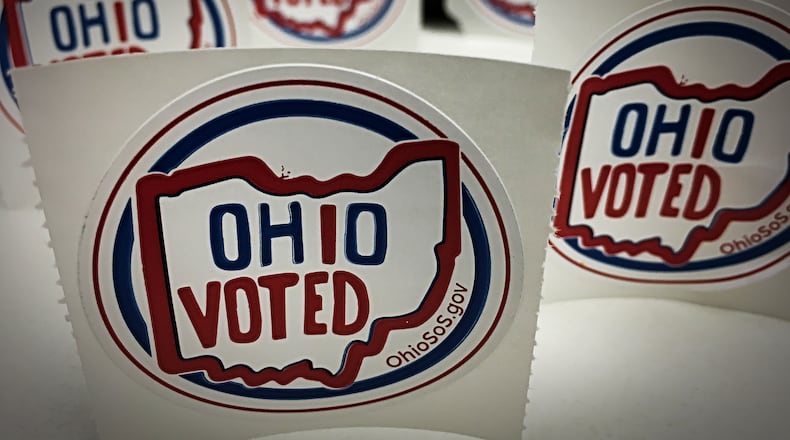Springfield will elect Rob Rue its new mayor on Tuesday. The current assistant mayor and city commissioner has no opponent.
Fewer candidates to choose from at the ballot box can mean voters have less ability to hold those in power accountable, experts say, and can discourage people from exercising their right to vote.
Research by voter engagement platform BallotReady found that 67% of races nationwide went uncontested in 2022, a number that increased the more local the election was. While only 3% of federal-level races were uncontested, as many as 70% of city-level races did not have opposition, the organization found.
According to BallotReady’s report, more than half of Ohio’s elected positions went uncontested in November 2022. Almost every state in the country saw a majority of positions that appeared on the ballot go uncontested in 2022, and only five states were below 40%.
However, the problem isn’t necessarily a new phenomenon, said Daniel Birdsong, senior lecturer of political science at the University of Dayton, as there’s not as much attention given to local elections.
“We tend to not give them as much significance as voters,” Birdsong said. “And so that, I think, spills over to candidates not looking at these races as being important, even though they are very, very important for the governing of our state and region.”
The effect of uncontested elections is understudied, said Lee Hannah, professor of political science at Wright State. But there is evidence that uncontested elections lead to less accountability and poorer performance from lawmakers. A 2011 study in “Legislative Studies Quarterly” found that state legislators who ran in uncontested elections were more likely to miss roll-call votes and introduced fewer bills than candidates running in contested elections.
At worst, a lack of options and qualified candidates can be demoralizing for voters.
“Over time, I think uncontested elections could lead to lower voter turnout and less engagement in general. And if elected leaders don’t really feel accountable, they could be more likely to shirk on their duties,” Hannah said.
Reasons many people don’t run include the current divisive political climate, Hannah said, or a lack of involvement or engagement in local issues. A 2019 Bloomberg study found that the decline of local newspapers and information on local issues translated almost directly to less civic engagement among citizens.
Another reason is simply people don’t have the time or resources to campaign for office, especially if a newcomer is facing an uphill battle against a longtime incumbent. Lack of contested elections could signify that running against them is not only hopeless, but costly, Hannah said.
“If you’re going to run, you have to be interested enough. You have to have the time. You have to have the money. You have to have the support,” Birdsong said. “You have to build a lot of that, and if you don’t see it around you, or at least that infrastructure around you, then you’re disincentivized to run.”
The solution? Get more people to seek elected office. A silver lining to the lack of competition could mean newcomers to the political process have a unique opportunity to get involved, according to BallotReady.
Another solution is elected leaders themselves modernizing and making transparent a sometimes opaque civic process, Lehner said, adding the way most candidates campaign for office “leaves people pretty uninformed.”
“You’ll have candidates’ nights where five candidates and four staffers show up, and they’re given three minutes to tell you what they believe in, who they are and where they come from,” Lehner said. “That doesn’t really give people much of an opportunity to see what this person’s credentials are.”
Regardless, much of the significant work that governs the lives of Americans is happening at the state and local level, Birdsong said.
“My day-to-day life is heavily impacted by whether or not we have passable roads, we have order around our neighborhood, little things like that, but we don’t usually ascribe great significance to those things. We kind of take them for granted,” he said.
Polling places will be open Tuesday across Ohio from 6:30 a.m. until 7:30 p.m.
SpringfieldNewsSun.com will offer updated results Election Night after polls close
Check out for our ePaper election coverage Wednesday morning at SpringfieldNewsSun.com/epaper


